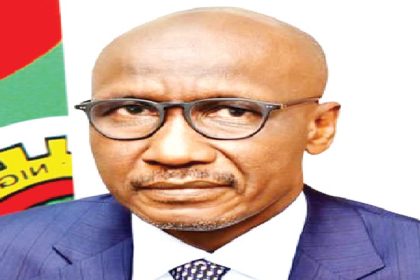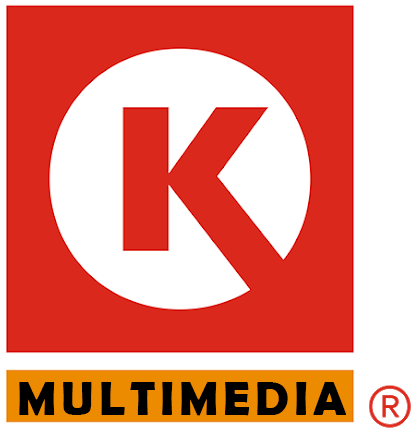
Nigerians were taken aback recently when the NNPC came out with so much gusto to admit a debt it had vehemently rejected on different occasions, raising concerns about the integrity of a company that released its 2023 financial report in the third quarter of 2024, reports DARE OLAWIN
The Nigerian National Petroleum Company Limited recently shocked many Nigerians when it admitted owing petrol suppliers. The masses were not surprised that the company was in debt; rather, they found it difficult to believe that after months of denial, a corporate company owned by the government could come out and admit the same claim.
Nigeria’s state-owned oil company admitted to owing $6.8bn. This stunning reversal raises questions about transparency, accountability, and the true state of the nation’s oil finances.
There have been reports that the NNPC owes its suppliers, hindering access to sufficient fuel supply. The PUNCH reported in July that Nigeria’s debt to petrol suppliers surpassed $6bn, making the NNPC struggle to cover the gap between fixed pump prices and international fuel costs.
A Reuters report stated that the national oil company began struggling early this year when late PMS payments surpassed $3bn. It was said that the company has still not paid for some January imports and the debt kept piling.
Since June, Nigeria’s tenders to buy PMS were smaller, traders said. From two in July, three more traders were said to have stopped supplying PMS to the NNPC as of now, making a total of five unpaid traders.
The spokesman of the oil company, Olufemi Soneye, denied claims of unpaid debt to PMS suppliers on several occasions. In August, he issued a statement to deny emphatically that the NNPC owed international oil traders $6.8bn.
“NNPC Ltd does not owe the sum of $6.8bn to any international trader(s). In the oil trading business, transactions are carried out on credit, so it is normal to have outstanding amounts at certain times. However, NNPC Ltd, through its subsidiary NNPC Trading, maintains many open trade credit lines with several traders. The company is fulfilling its obligations on a first-in-first-out (FIFO) basis,” he stated.
Without an iota of remorse, the company made a U-turn in admitting that it owed oil suppliers.
“NNPC Ltd has acknowledged recent reports in national newspapers regarding the company’s significant debt to petrol suppliers. This financial strain has placed considerable pressure on the company and poses a threat to the sustainability of fuel supply,” Soneye said in another statement.
As Nigerians continue to complain over the lingering fuel crisis that has refused to ease off since July, the sudden admission of a claim the NNPC has severally denied came as an act unbecoming of a government-owned corporate organisation.
Earlier before this, the NNPC also admitted that it had been selling petrol to marketers at half of the cost. This was also after several months of denying that there was no subsidy payment on PMS.
The NNPC, being the sole importer of petrol, admitted that the Federal Government subsidised the current price of PMS, which the marketers recently put at N1,117 per litre.
Though the NNPC denied paying fuel subsidies to marketers in the last nine years, it said the government allows it to sell at a price below the landing cost.
The Chief Financial Officer of the company, Alhaji Umar Ajiya, stated, “In the last eight to nine years, NNPC has not paid anybody a dime as a subsidy; no one has been paid kobo by NNPC in the name of subsidy. No marketer has received any money from us by way of subsidy.
“What has been happening is that we have been importing PMS, which has been landing at a specific cost price, and the government tells us to sell it at half price. So the difference between the landing price and that half price is a shortfall.
“And the deal is between the Federation and NNPC to reconcile. Sometimes, they give us money, so there is no money exchanging hands with any marketer in the name of subsidy,” he said.
Many have been asking to know if all these latest revelations were the true state of NNPC or if these were made to hoodwink Nigerians because the government wanted to hike the price of petrol to N900/litre.
“Why should we believe you now when you lied to us in the past? Where is the trust? Where is the integrity,” a netizen asked.
Over the years and up to now, many are of the view that the NNPC is full of opacity, lacking transparency and accountability. The recent disclosure by the President of the Dangote Group, Alhaji Aliko Dangote, that the NNPC only has a 7.2 per cent stake in his refinery was a startling one to Nigerians who thought the nation had a 20 per cent stake in the refinery.
While she was reacting to this, a former Minister of Education, Oby Ezekwesili, recalled that during the Olusegun Obasanjo administration, she used to tell the NNPC that it could not continue to run as a federation on its own.
“When we were in government, I often told the NNPC leadership that they cannot carry on as though there is a ‘Federal Republic of the NNPC’ just because they think of themselves as ‘the goose that lays the golden egg’.
“The opacity of the NNPC was the reason we took great delight in designing the Multi-Stakeholders Nigeria Extractive Industries Transparency International in the early 2000s that I pioneered as chairperson. We went above global minimum voluntary standards of transparency requirements by entrenching ours in an Act that established NEITI as the transparency regulator of the oil and minerals sector,” she explained.
Since 2007 when Obasanjo’s administration wound up, the NNPC has gone through various transformation and leadership changes. With the advent of the Petroleum Industry Act, the NNPC changed from a corporation to a limited company. However, many have argued that nothing much has improved when it comes to transparency within the NNPC.
In a recent interview, a Senior Advocate of Nigeria, Olisa Agbakoba, bemoaned what he called the opaqueness in the NNPC. Agbakoba, who called for the repeal of the PIA, said the act gave the NNPC too much power, though he lamented that the NNPC has not been as efficient as Saudi Aramco.
“The GCEO of NNPC today under the PIA wears two caps; it is so confusing when you read the act and cannot tell exactly the job the office does. He is the state regulator of oil, he is also an oil operator; so, he does two things, and he cannot do them well.
“It is either you are regulating like the Minister of Energy in Saudi Arabia, or you are a player like Chevron. The NNPC should be efficient like Saudi Aramco. It doesn’t matter whether it is public or private. It has to refine the interest of Nigeria,” Agbakoba stated.
Asking that the NNPC and the entire oil sector be overhauled, he said, “Section 62 of the PIA states that the NNPC can deduct money. Before, NNPC used to deduct money. I hope you know that Section 162 creates a federation account. All monies due to the government from all sources shall be paid into the federation account except for a few things.
“How is it that the PIA legitimizes what the NNPC has been doing? That is shocking. Before now, they used to do it claiming they cannot operate without money. But now, the act says they can deduct all their expenses. That is the opaqueness of NNPC. That’s the problem.”
A Professor Emeritus, Wumi Iledare, wondered why anyone would believe the NNPC when it was denying its debt and subsidy payments.
Iledare held that it was not the NNPC organisational structure that was at fault, but manpower deployment. He lamented that the PIA was signed to rekindle the oil and gas sector, but it was haphazardly implemented.
He stated that the entire Ministry of Petroleum and not just the NNPC needs restructuring, as he asked President Bola Tinubu to appoint an anchor Minister of Petroleum to oversee the oil and gas sector, saying the ministers of state do not have the constitutional backing to perform the duties of the full-fledged minister.
Speaking with The PUNCH, the Chairman of the Board of Trustees, Community Development Committees of Niger Delta Oil and Gas Producing Areas, Joseph Ambakederimo, lamented the development, saying it baffles one to the marrow when one sees what’s coming out from the NNPC, a supposed corporate organisation that should be at par with Saudi Aramco, a company that manages the revenue stream of the country.
Ambakederimo worried if the leadership of the country is comfortable with how the company is being run.
He queried: “The question to ask is what would have happened to Mele Kyari and his management team if the NNPC was to be a responsible corporate organisation that should operate within and regulated by CAMA, taking into cognisance the latest admission of the NNPC owing $6bn to gasoline suppliers after deliberately pushing back on the story?”
He added, “The company practically denied the story, lied about it, cooked its books by declaring evaporated profits, bandied figures and only now to admit without remorse or the board resigning en masse.
“Again, look at the issues with the refineries, with many failures on its functionalities, defaulting on its own timelines set by itself, yet no one is held to account. Certainly, the NNPC is still tied to the apron strings of the Presidency and it has practically been run aground.”
Reacting to claims that foreign exchange liquidity was the reason it could not import PMS into the country, Ambakederimo asked the NNPC to state where all of the monies accruing to the country from the forward sale of crude oil are.
“Where is the inflow? Or can we not mention the other very important issues of cost of production that have become a recurring decimal with no gains made, increased production levels and lack of new investments into the sector, all of these were promised by Mele Kyari when he was appointed some five years ago and yet none has been achieved and we are all keeping quiet?
“For me, the NNPC has become an albatross to the country, to the government of President Bola Tinubu, and to Nigerians, except the President is not seeing it that way or perhaps he is being misinformed of the true state of the NNPC and its activities.
“Therefore, my submissions would be that if President Bola Tinubu refuses to sack the board of the NNPC and order a painstaking audit of the company and all of its subsidiaries, then the conclusion would be that the President is insensitive to the plight of Nigerians,” he submitted.
Similarly, an oil and gas expert, Henry Adigun, stated that the NNPC loves to deny the obvious, with the way it has chosen to operate its business. Adigun said he had repeatedly told journalists that the NNPC was selling PMS below the landing cost but it was only denying it. He called for transparency and accountability going forward.
The NNPC’s admission of debt to petrol suppliers has raised fundamental questions about its integrity, transparency, and accountability. The corporation’s history of denial and opacity has eroded public trust, and its recent about-face has only added to the confusion.
As Nigerians continue to grapple with the lingering fuel crisis and economic uncertainty, it is clear that the NNPC must undergo a radical transformation to restore its credibility and effectiveness. This requires a commitment to transparency, accountability, and good governance, as well as a willingness to reform its outdated structures and practices.

